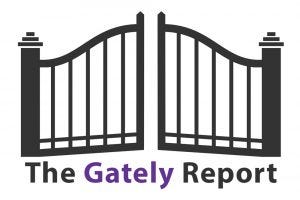The Gately Report: Sumo Logic Channel Partners to Get Bigger Share of Business
Cybersecurity professionals are increasingly concerned about escalating cyberattacks due to the Ukraine crisis.

Sumo Logic channel partners can expect to see more of the company’s business driven through them in 2022.
 That’s according to Lynne Doherty, Sumo Logic’s new president of worldwide field operations. Last November, she joined Sumo Logic from McAfee Enterprise, where she was executive vice president of global sales and marketing. McAfee Enterprise has since split into Trellix and Skyhigh Security.
That’s according to Lynne Doherty, Sumo Logic’s new president of worldwide field operations. Last November, she joined Sumo Logic from McAfee Enterprise, where she was executive vice president of global sales and marketing. McAfee Enterprise has since split into Trellix and Skyhigh Security.
Sumo Logic reported 19% year-over-year revenue growth for fiscal 2022.

Sumo Logic’s Lynne Doherty
“We had a great year here at Sumo Logic,” Doherty said. “Partners played a huge role in our success and in our growth. Last year, partners made up more than half of our new business, and that’s a growing number every year. So they play a very strategic role in both providing value-added services to our customers as well as helping us to scale. In addition, last year we were named Amazon Web Services (AWS)’s ISV Partner of the Year, which I think says a lot about our value as a partner. And that’s in marketplaces with MSPs, ISVs, distributors and traditional resellers. I think that award was really a validation of how important partners are to us and how partner-focused our organization is. So we couldn’t have done it without our partners.”
Last year, Sumo Logic acquired DFLabs, gaining a security orchestration, automation and response (SOAR) platform. It also acquired Sensu. That acquisition will accelerate Sumo Logic’s observability strategy by providing customers with an end-to-end solution for infrastructure and application monitoring.
Impact of Ukraine Invasion
In a Q&A with Channel Futures, Doherty talks about how the Ukraine invasion has impacted her company. She also addresses opportunities for Sumo Logic channel partners.
Channel Futures: Does Sumo Logic have operations and business in Russia and/or Ukraine? If so, has it taken action because of the Ukraine invasion?
Lynne Doherty: We have no people in Russia or Ukraine, but we have a big technology hub in Poland. And so for us, first and foremost is complying with any U.S. sanctions that come out. So we’re making sure within our products that we’re complying with the U.S. sanctions. So that’s on the product side. But from a human side, we have done a lot to make sure to support our resources in Poland as there are so many people moving from Ukraine into Poland as refugees. And so our effort has largely been supporting our teams in Poland as we don’t have any people in Russia or Ukraine.
Scroll through our slideshow above for more from Sumo Logic and more cybersecurity news.
Want to contact the author directly about this story? Have ideas for a follow-up article? Email Edward Gately or connect with him on LinkedIn. |
Read more about:
MSPsAbout the Author(s)
You May Also Like


